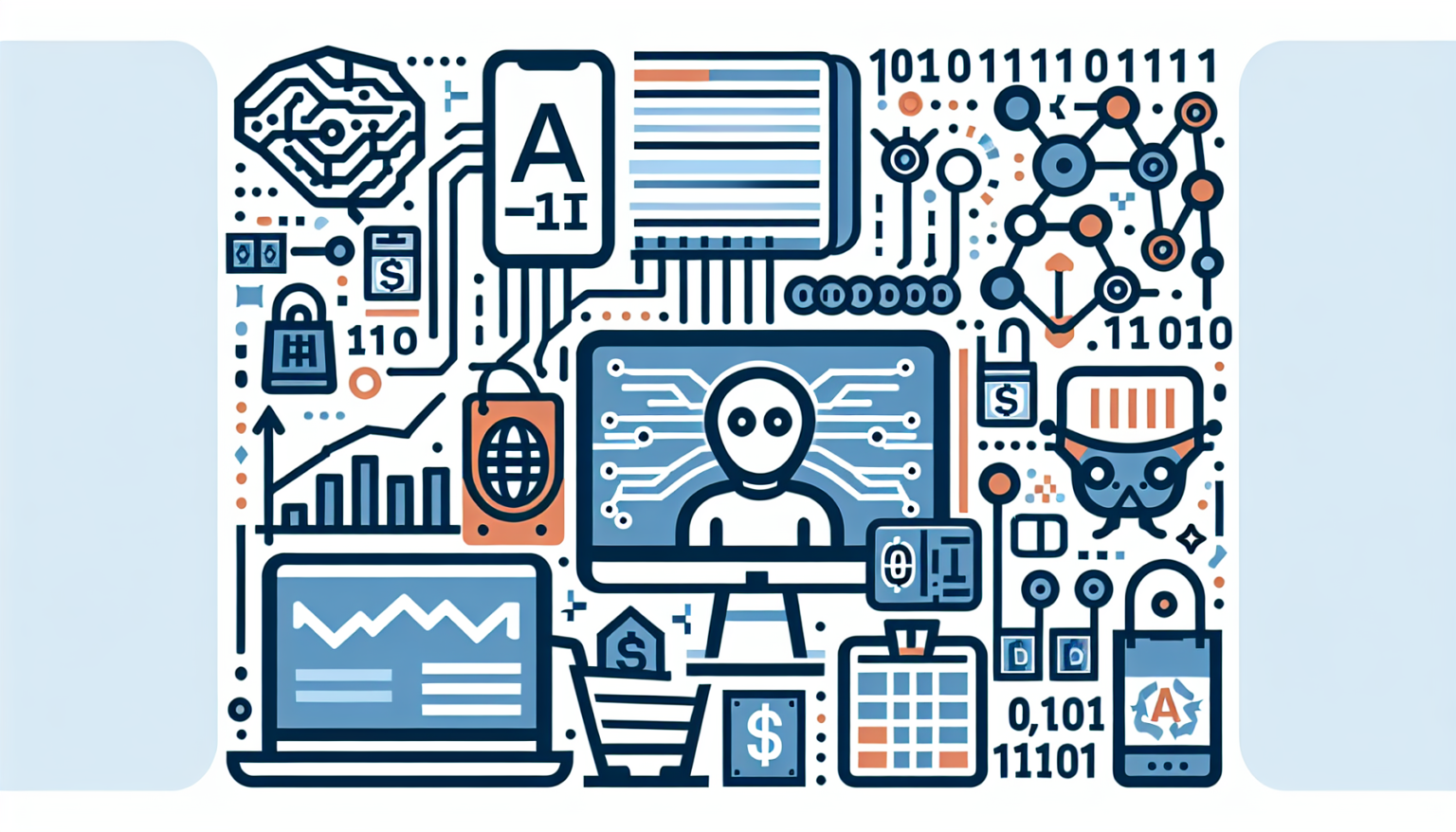The Evolution of Retail Trading Platforms
A Brief Historical Perspective
Over the past few decades, retail trading platforms have undergone a dramatic transformation. Initially, investing was largely the purview of institutional investors and the wealthy elite, but the advent of the internet democratized access to the stock market. This shift paved the way for retail investors to trade stocks, options, and other financial instruments directly from their homes.
<h3-The Role of Technology
Technology has played a pivotal role in shaping the trading landscape. From the introduction of online brokerage accounts to mobile trading apps, innovations have made it easier for everyday investors to engage with the markets. Now, with the integration of artificial intelligence (AI), we are witnessing yet another major leap forward.
<h2-Understanding AI in Retail Trading
Defining AI in Finance
Artificial intelligence refers to the simulation of human intelligence processes by machines, particularly computer systems. In the context of finance and retail trading, AI encompasses a variety of technologies, including machine learning, natural language processing, and algorithmic trading.
Machine Learning
Machine learning is a subset of AI that focuses on the development of algorithms that can learn from and make predictions based on data. This technology allows trading platforms to analyze vast amounts of historical and real-time data to identify patterns and trends that a human trader may miss.
Natural Language Processing
Natural language processing (NLP) enables computers to understand, interpret, and generate human language. In retail trading, NLP can be harnessed to analyze news articles, social media sentiment, and financial reports, providing investors with insights that can influence trading decisions.
Benefits of Integrating AI into Trading Platforms
Enhanced Data Analysis
One of the standout features of AI in trading is its ability to analyze large datasets swiftly and accurately. Traditional methods of analysis often rely on manual interpretation, which can be time-consuming and prone to human error. AI streamlines this process, allowing retail investors to access deeper insights into market trends and price movements.
Improved Decision-Making
AI algorithms are designed to process vast amounts of information, assess risks, and make data-driven recommendations. For retail investors, this means having access to advanced analytical tools that can inform their trading strategies. By leveraging AI, investors can make more informed decisions that enhance their chances of success.
Automation of Trading Processes
Another significant boon of AI integration is automation. Many trading platforms now offer automated trading features, allowing users to set parameters for trades based on pre-defined criteria. This means that investors can execute trades around the clock, taking advantage of opportunities even when they are not actively monitoring the market.
Strategies for Automation
Investors can choose from various automated trading strategies, such as:
- Algorithmic trading
- Robo-advisors
- Market-making algorithms
Each of these strategies employs AI in different ways to optimize trading efficiency and performance.
Challenges and Considerations
Market Volatility
While AI can certainly enhance trading strategies, it is essential to understand that the market is inherently volatile. AI models are based on historical data, which may not always accurately predict future price movements. Investors should remain cautious and not rely solely on AI-generated outputs.
Ethical Considerations
As AI technologies become more integrated into trading platforms, ethical considerations begin to surface. Concerns such as algorithmic bias, data privacy, and the implications of high-frequency trading can pose significant risks. Investors should be aware of the ethical dimension behind AI and how it may impact market fairness.
The Human Element
In a world increasingly dominated by AI, the human aspect of trading cannot be underestimated. While AI can provide valuable insights and automate various processes, the emotional intelligence, intuition, and experience of a seasoned trader still play a crucial role. It is essential for investors to strike a balance between leveraging AI tools and trusting their instincts.
Choosing an AI-Driven Trading Platform
Features to Look For
When considering a retail trading platform that integrates AI, investors should look for certain key features:
Real-Time Data Analytics
Platforms that offer real-time data analytics can provide investors with up-to-the-minute insights, crucial for making informed trading decisions during volatile market conditions.
User-Friendly Interface
A user-friendly interface is essential, especially for those new to investing. Clear navigation and well-organized tools can enhance the user experience and make it easier to leverage AI features.
Robust Security Protocols
With the increasing reliance on technology, security becomes paramount. Investors should ensure that the platform employs top-notch security measures to protect their sensitive financial data.
Costs and Fees
Investors should also be mindful of the costs associated with AI-driven trading platforms. While some platforms may offer advanced features, they might also come with higher fees. It’s essential to evaluate whether the benefits justify the costs.
Future Trends in AI and Retail Trading
The Rise of Personalized Investing
As AI technology continues to evolve, personalized investing is likely to become more common. Platforms may leverage AI to tailor investment strategies based on an individual’s risk tolerance, investment goals, and preferences. This level of customization can enhance the overall trading experience.
Increased Adoption of AI Tools
As awareness grows about the advantages of AI in trading, more retail investors are likely to embrace these tools. This trend could lead to a shift in how trading is approached, making AI a standard part of the retail trading arsenal.
Continuous Improvement and Learning
AI systems are designed to learn and adapt continually. As they process more data and gain experience in the market, we can expect ongoing enhancements in predictive accuracy and trading strategy effectiveness. Retail investors will benefit from increasingly sophisticated AI tools that evolve in tandem with market dynamics.
Final Thoughts for Investors
As retail trading platforms increasingly integrate AI technologies, investors have access to a wealth of resources that enhance their trading capabilities. However, it is essential to be informed and cautious. Understanding both the benefits and limitations of AI can empower retail investors to make better decisions and navigate the complexities of the financial markets effectively. With the right approach, leveraging AI can truly unlock new levels of trading success for everyday investors.








